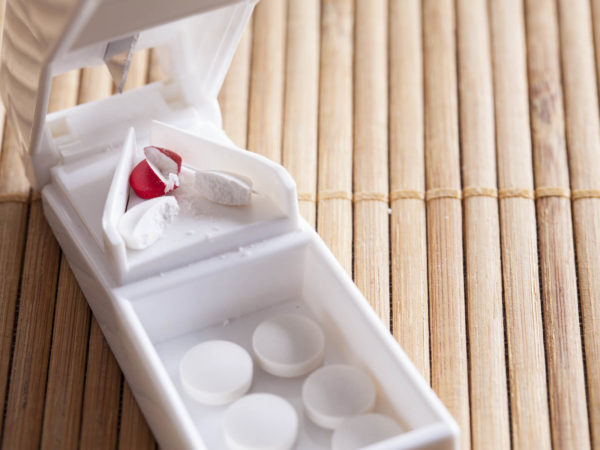Why Not Divide Pills?
I’ve been told that it is dangerous to split pills in half (or smaller). This sounds kind of far-fetched to me. What’s the harm?
Andrew Weil, M.D. | February 11, 2011

The warning you received may have been related to reports of a Belgian study that looked at how accurately people split pills. The result: not very accurately at all, which could be a problem with the pill splitting so common in nursing homes and in other health care settings. The researchers noted that in Germany almost one-quarter of drugs are split after they’re purchased.
People split pills for all sorts of reasons – to save money, to make tablets easier to swallow or to lower the dose (or to increase it by giving, say, one-and-a-half pills instead of one). Some medications are conveniently "scored" by the manufacturer at their midline, and it isn’t uncommon for physicians to advise patients to divide them. If the lowest available dose is higher than the physician recommends, he or she may advise cutting the pills in half. And since some drugs cost the same whether they contain 50 mg or 100 mg, you get more bang for your buck by buying the larger dosage and cutting the pills in half.
The Belgian study showed that nearly a third of the split fragments analyzed – five researchers split tablets into 3,600 separate quarters – deviated from the recommended dosages by 15 percent or more. That may not matter if you’re splitting an aspirin or other over-the-counter pain killer, but if the drug was prescribed for Parkinson’s disease, congestive heart failure or arthritis, a splitting error could deprive a patient of the therapeutic amount needed, the researchers concluded, especially if fragments scatter in the process.
They found that the most accurate way to split pills is with a pill splitter – you can buy one in the drugstore. They’re usually small rectangular plastic containers with a slot where you place the pill; when you close the container, a sharp blade slices through the tablet. But in the study, even this method led to an error margin of 15 to 25 percent in 13 percent of cases. When a knife was used the error rate was 17 percent and when scissors were used, the error rate was 22 percent.
If you split pills because whole ones are hard to swallow, you might ask your health care provider for another medication that would be easier for you to take. I wouldn’t advise splitting pills into quarters – that is likely to yield very unequal segments. You can’t split capsules containing liquids or powders, and obviously don’t split any pills that are "timed release" or coated to protect your stomach or delay absorption.
Andrew Weil, M.D.









